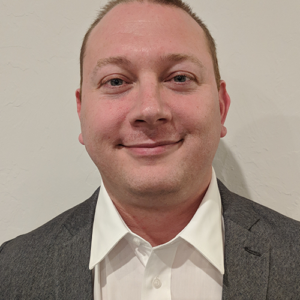The history of indigenous people in America is probably not the first likely topic you’d expect to discuss with the chief investment officer of Techstars, a venture capital firm in Boulder, Colorado, but it was very much on the mind of Nicole Glaros when she visited a Native American museum.
Glaros tweeted a quote she saw at the museum. It was something an early white American wrote where he said that American Indians needed to learn to privilege the “I” over the “we.” But the Native Americans had it right, Glaros says. “We had it wrong. It is so much more powerful to be a we than I. You get so much farther when it’s ours, not mine.”
Glaros visited the museum along with other members of the board of a Denver bank. As a white person growing up in Florida, Glaros says, she knew very little about the experiences of Native Americans. She was appalled to learn about the systematic separation of children from their families in order to force indigenous people to adopt white culture and language.
Going to visit the museum as a bank board member is just one of the many experiences Glaros has had in her role as a leader in the tech startup community of Colorado. Now in transition from her role, Glaros reflected back on her experiences in a recent episode of Leading With Genuine Care.
After founding her own startups, Glaros moved to Colorado to join a business incubator. Then, in 2008, she joined Techstars, which at the time had only the founder and a part-time bookkeeper. In the last 14 years, Glaros helped grow the firm exponentially; it went from having 10 companies in its portfolio to now having over 3,000 and employing over 300 people around the world.
When asked if, now that she’s reached the proverbial top of the mountain, there was an emptiness, Glaros reports being exhausted. And yet, “it’s been a crazy ride,” she says, and further, “When you get to the top, you’re exhausted. Then you have this view, this perspective that you didn’t have on the way up. Because you’re looking at your feet, you’re looking at every step. You have this moment of just taking it all in. Look at what we did. Look at how far we’ve come. And man, I need a nap! . . . The crazy thing is you still have this climb down.”
For now, though, Glaros is just looking around at the other peaks and valleys and figuring out what’s next for her.
Building Community
According to Glaros, the growth of the tech startup ecosystem in Colorado was in part due to the intentional actions of those who were there, a focus on “us” over just “I.” The people who were part of this budding community looked around and said, “If not us, then who?” Then they proceeded to reach out, make themselves available, and pull people up. COVID put the brakes on this flourishing community, though a lot of new people have moved to the area. It’s now time for the next generation to start pulling others up and reviving the community, Glaros says.
Building with Intention
Glaros sees the rising numbers of conscious entrepreneurs being a positive trend, but adds that she thinks what’s really important is being intentional—intentional and aware about possible consequences of what you’re building and how you’re building it. It’s important for entrepreneurs and CEOs to be aware of their mindset, thoughts, and behaviors because of the impact these can have on the business and the people around them.
Can an entrepreneur learn to be more intentional? Yes, Glaros says, but she thinks learning happens more through doing and seeing others do it, rather than reading the latest books and articles. “The more business books I read, the more research I read, the more smart people I follow, what I came to realize is the proliferation of high quality content is accelerating but the success and failure rates are staying constant. Why is that? . . . How many people take the information and actually live it? It’s so much harder to do.” Further, Glaros says, “It’s not [just] what you do, it’s how you do it.”
As an example illustrating why the “how” is as important—or more important—than the what, Glaros relates how one company was told by their board that they needed to slash expenses, and needed to lay off half their staff. The CEO, however, didn’t accept that this was the only solution. He went back to his people and, with their input, figured out an alternative that saved people’s jobs.
Blocking Out the Noise To Focus on the Elephants
One of the secrets to Glaros’s success while at Techstars was her decision to block out 90 minutes every morning to work on big-picture issues directly related to growing the firm. She did not schedule meetings, check email, or allow anything to disrupt her during these focused sessions. Instead, she focused on what she needed to do to help move the business forward. She harnessed her clear intention and an awareness of what she most needed to do to accomplish her goals.
Glaros very much believes that “what you focus on, expands.” She related how she did a master’s in sports psychology and shared research that she learned about athletes recovering from injuries. The athletes that mentally rehearsed themselves performing, recreating what it would feel like, look like, sound like, and more, demonstrated the power of the mind. Their performance rates after recovery surpassed those who didn’t engage in mental rehearsals. Similarly, athletes who imagined themselves making mistakes did not do well at all. “What you’re imagining, what you’re focusing on, is the thing that will end up happening,” says Glaros.
Glaros sees this phenomenon at work with founders, too. Founders who focus on not having enough money, for example, are more likely to hit a wall or fail. By contrast, those who make a plan and envision positive outcomes, like planning on the number of sales they’ll make, more often experience success.
The problem, though, is that humans are hard-wired to look for the dangers, so it’s a tendency we have to actively work against. The first step is to become aware that you’re doing it, says Glaros. “Once you become aware of it, you can stop it,” she says. She recommends writing down positive affirmations to remind you, posting them in strategic places where you’ll see them. “Trying to continuously redirect your brain to the outcome you want is crucial to manifesting it,” she says. Founders in particular already understand this. She points out that they started with a vision or idea that they then made real; conversely, “How do you not think you’re manifesting these negative things?”
Another piece of advice Glaros offers is that companies should ask their employees what they could work on that would be a “hell yes.” Rather than recruiting people to do something, ask them what they would most like to do. While she realizes this is not fully practical, she would love to see a world where people are energized and excited about what they do: “Imagine the shift in what a group of people could do if they’re a ‘hell yes.'”
The conversation with Nicole Glaros continues on the Leading with Genuine Care podcast, where we talk more about working with founders, mindset, and why she loves physical challenges. Connect with me on Twitter and LinkedIn and keep up with my company imageOne. Check out my website or some of my other work here.




